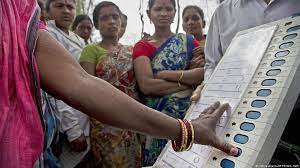Electoral reforms are changes made to the electoral process to make it more transparent, fair, and efficient. In India, it has been an ongoing process, with several changes made over the years to improve the electoral system. In this article, we will discuss the need for electoral reforms in India, the current status of electoral reforms, and some proposed reforms.

Table of Contents
The Need for Electoral Reforms in India
India is the world’s largest democracy, with a population of over 1.3 billion people. However, the electoral system in India has several loopholes that need to be addressed. Some of the reasons for the need for electoral reforms in India are:
- Vote buying and use of money power in elections.
- Criminalization of politics.
- Manipulation of the electoral process through the use of violence, booth capturing, and rigging.
- Use of hate speeches and propaganda during election campaigns.
- Lack of transparency in the funding of political parties.
Current Status of Electoral Reforms in India
Over the years, several reforms have been implemented to improve the electoral system in India. Some of these reforms are:
- Introduction of Electronic Voting Machines (EVMs) to replace paper ballots, making the voting process more efficient and reducing the chances of vote manipulation.
- The establishment of the Election Commission of India, an independent body responsible for conducting free and fair elections.
- The introduction of Voter Verifiable Paper Audit Trail (VVPAT) system to enhance transparency and accountability in the voting process.
- Introduction of NOTA (None of the Above) option in voting to allow voters to express their dissatisfaction with the candidates.
Proposed Electoral Reforms in India
Several proposals have been made to reform the electoral system in India. Some of the proposed reforms are:
- Limiting the expenditure of political parties during elections to reduce the use of money power.
- Introduction of state funding of elections to reduce the influence of big donors.
- Debarring candidates charged with serious criminal offenses from contesting elections.
- Making it mandatory for political parties to disclose the sources of their funding and make this information available to the public.
Conclusion
In conclusion, electoral reforms are essential for the smooth functioning of a democracy. In India, several reforms have been implemented to improve the electoral system, but there is still a long way to go. The proposed reforms aim to increase transparency, reduce the influence of money power, and make the electoral process more efficient and fair. Implementing these reforms will go a long way in strengthening India’s democracy and ensuring that the voices of its citizens are heard.
Important Links